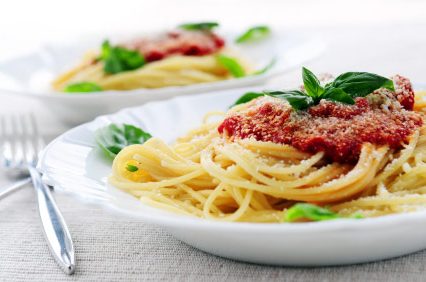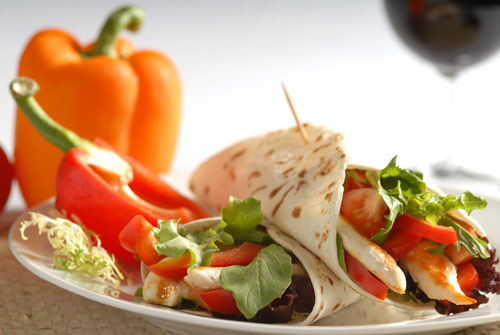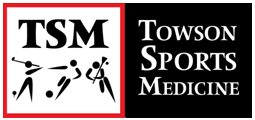Pre-Event Meals
 Eating a well-balanced meal before a competition helps give an athlete the essential vitamins and minerals needed in the diet but also gives the athlete energy in order to perform. All meals should have enough calories to cover the expended energy an athlete uses during the competition. However, most of those calories should come from complex carbohydrates such as cereal, pasta, and potatoes. Basically eating a pre-event meal gives energy, prevents fatigue, decreases hunger pains, and provides hydration to the body. In combination with the pre-event meal, all athletes should properly hydrate their bodies with water several hours before the competition begins and continue through out the competition. Below you will find the basics of pre-event meals.
Eating a well-balanced meal before a competition helps give an athlete the essential vitamins and minerals needed in the diet but also gives the athlete energy in order to perform. All meals should have enough calories to cover the expended energy an athlete uses during the competition. However, most of those calories should come from complex carbohydrates such as cereal, pasta, and potatoes. Basically eating a pre-event meal gives energy, prevents fatigue, decreases hunger pains, and provides hydration to the body. In combination with the pre-event meal, all athletes should properly hydrate their bodies with water several hours before the competition begins and continue through out the competition. Below you will find the basics of pre-event meals.
- Meal should be eaten 2-4 hours before the competition begins
- Most energy comes from eating meals during this time frame
- Food needs 1-4 hours to fully digest and absorb into the body
- The bigger the meal the more time needed for digestion
- Optimally the pre-event meal should consist of 500-1000 calories, which should come from a variety of food sources
- Foods should be high in carbohydrates & starch (easier for the body to breakdown and digest)
- Liquid meals can be used 20-30 minutes before competition
- Liquids are easily digested by the stomach rather than solid foods
- Experiment with different foods and timing during the training phase
- DO drink lots of fluids especially water before competition to keep the body hydrated
- Do not eat a meal high in fat or protein (takes longer for the body to breakdown these two substances)
- Do not drink carbonated or caffeinated drinks (may cause indigestion or stomach discomfort)
- Caffeine is a diuretic, which causes the body to become dehydrated
- Eating sugary or simple sugars (candy, honey) before competition may hinder performance
- Avoid concession stand foods before competition, which are high in fat and take the body longer to digest causing stomach discomfort or nausea.
Pre-Event Example Meal (3-4 hours before):
- Fresh fruit and vegetables
- Baked potato
- A bagel, cereal with low-fat milk, low-fat yogurt
- Sandwich with small amounts of peanut butter or lean meat
- 1-2 cups of cold water or sports drink
Post-Event Meals
 The post-event meal is important for any athlete after competition. This meal helps replenish glycogen (energy) stores and electrolyte imbalances. The basic goal for the post-event meal is to refuel the muscles and prepare for the next competition or practice. Doing this will decrease the chances of muscle fatigue and performance.
The post-event meal is important for any athlete after competition. This meal helps replenish glycogen (energy) stores and electrolyte imbalances. The basic goal for the post-event meal is to refuel the muscles and prepare for the next competition or practice. Doing this will decrease the chances of muscle fatigue and performance.
- Important for daily work outs and sport activity
- Eat 15-30 minutes after competition has ended
- A liquid meal can be used in place of solid food 15-30 minutes after competition (easily digested and absorbed by the body)
- This time frame is when the body is most receptive to energy replacement techniques
- Eating a full meal 2-4 hours post-event help with the recovery period
- Well balanced meal high in carbohydrates (main energy source)
- Eat meals high in carbohydrates but also include minimal amounts of protein and fatty foods
- The amount of calories needed to refuel the body depends on duration of event, body size and expended energy
- Rehydrating the body after competition is a main priority
- Drink 2 cups of water for every pound lost during competition or until urine is clear
- Drinking cool water lowers core body temperature
Post-Event Example Meal
- Tuna or turkey sandwich
- Fresh fruit and vegetables
- Cheese and crackers
- 1-2 cups fruit juice
- 1-2 cups cold water
- Bowl of cereal with low-fat milk and toast with jelly


